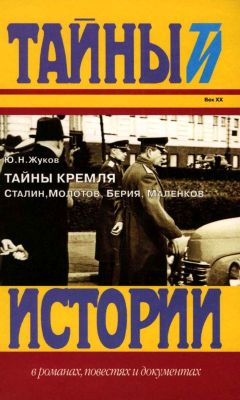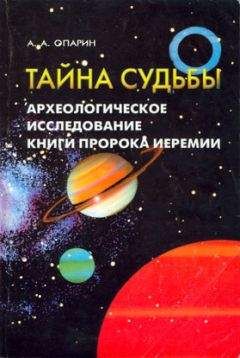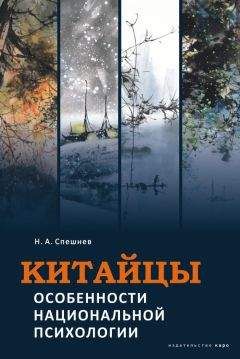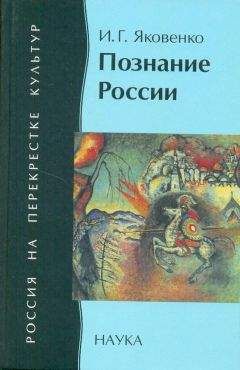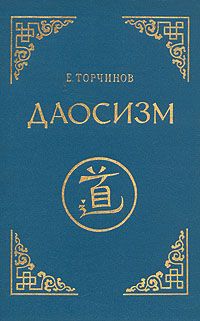Kim ManChoong - The Cloud Dream of the Nine
Yang, pretending that he did not understand, replied: “What do you mean? Justice Cheung had one daughter only, and she has been dead for a long time. Since the dead Cheung See visited me, what living Cheung See can there be beside her? If she is not dead, why she is alive? If she is not alive, why she is dead? Anybody knows that. To say sometimes of anyone, 'Why they are dead?' and again sometimes 'Why they are alive?' is nonsense. One must inquire whether the dead person is really Cheung See, or whether the living person is really Cheung See. If it is true that she is really alive then it is false that she is dead; and if it is true that she is really dead then it is false to say that she is alive. I cannot understand what your Highness says.”
Orchid then broke in: “Her Majesty the Dowager adopted Cheung See as her daughter and made her Princess Blossom, and put her and me together in the Master's service. Princess Blossom is indeed the same Cheung See who listened when you played the harp. If not so, why should she be in every look and feature the exact image of Cheung See?”
The Master made no reply but gave a little moan and then suddenly raised his head and said: “When I lived at Cheung See's home, Cheung See's maid Cloudlet waited upon me. I have something that I want to ask of Croudlet. Where is she now? I want to see her.”
Orchid said: “Cloudlet just now came into the palace to see Blossom, and learning that the Master was unwell, she is anxiously waiting outside and wants to make her salutations.”
The door opened and Cloudlet entered. She went up to the Master and said: “Are you better, my lord? I certainly hope so.”
Yang replied: “Let Cloudlet stay by me alone, and let all the others go out.” And so the Princesses and Chin See withdrew and stood at the head of the open porch.
Then the Master arose, washed, arranged his dress and told Cloudlet to call the other three.
Then Cloudlet, bottling up her smiles, came out and said to the two Princesses and to Chin See: “The Master wants to see you,” and so the four went in.
Yang now wore a ceremonial robe and special hat, and held in his hand a white stone chatelaine. His face was fresh as the spring breezes, and his mind as clear as the autumn stream. Not a vestige was there of anything that would mark him as ill. Blossom suddenly realised that she had been fooled, laughed and bowed low, making no further inquiries as to his health.
Orchid asked: “How is your lordship feeling now?”
The Master, with a serious countenance, said: “Truly we have fallen on peculiar days when the women of a household band together to play practical jokes upon the husband. I am a man of high rank, of the dignity of a first minister, and I have sought high and low for some way by which to correct this disorder in my family but have not succeeded. In my anxiety I fell ill, but I am quite recovered now, so do not be anxious, please.”
Orchid and Chin See laughed with all their might but made no reply, and then Cheung See said:
“This was not our doing, please. If the Master would find full recovery from his sickness let him look up to the Empress Mother and tell her.”
Yang could no longer restrain his pent-up feelings, but broke out laughing and said: “I had expected to meet you only in the next world and had so planned, but to-day you were in my dream. Is it not truly a beautiful dream?”
Cheung See said: “It is all due to her Gracious Majesty's kindness to me her child, and to the unbounded favour of his Majesty the Emperor, and the love and tenderness of Princess Orchid. It is written on my bones and engraved deep in my heart. Never can my life be able to speak all my remembered gratitude.” Then she told him everything that had come to pass, and he thanked her, saying: “The equal of your dear-heartedness has never been recorded since time immemorial. I have no way to make any return for this highest favour. My sincerest regards and tenderest love shall all be yours while we live our happy life together.”
The Princess then spoke her thanks, saying:
“This is all due to my dearest sister's plans, and it is her heart of love that has moved heaven to bless us. It was no work of mine.”
At this time the Empress Dowager summoned some of the palace-maids to inquire concerning the Master's health, and when she knew the reason for it she laughed heartily and said: “I was indeed in doubt regarding it.” So she summoned Yang to her presence and the two Princesses came as well and sat together with him.
The Empress said: “I hear that the Master has united again the happy bonds that bound him to his dead Cheung See.”
Yang bowed and made answer: “Your Majesty's kindness is great as high heaven; though I wear down my body and offer up the vitals of my soul I can never pay the hundredth part of all the favours you have shown me.”
The Empress said: “That is all a joke; why do you talk of such nonsense?”
On this day the Emperor received audience of the ministers in the Grand Hall of the palace. Certain of them said: “We learn that a great star has arisen; that sweetened dew has fallen; that the waters of the Whang-ho have become clear; that the crops have grown to abundance. Three subject kings have offered their land as tribute; the fierce Tibetan rebels have changed in heart, and now bow in grateful submission. This is due to the virtues of your Majesty.”
The Emperor graciously disclaimed merit and put it all to the credit of his ministers.
But they made reply, saying: “General Yang So-yoo remains these days long within the palace and affairs of State are heaped up and need looking after.”
His Majesty laughed and said: “The Empress Dowager has held him fast these days and so the General is not free to go. I shall tell him myself, however, and see that he gets to work.”
The day following the Master went to the home of Justice Cheung to look after some business, and from there he wrote a memorial asking that he be permitted to bring his mother. His memorial read:
“General the Prince of Wee, son-in-law of her Majesty, bows in humble salutation, and presents to his Majesty this memorial. Of humble origin from the land of Cho, I had but two or three fields on which to live. My scholarship embraced only a single set of the Classics. My old mother still lives, but I have not cared for her as I should have liked. I thought of the measures of grain that I would have given her, and of the delicacies that I would have prepared. When it came to parting, my mother said to me, 'Our literatus home has fallen to decay, and the fortunes of the family run low. You are responsible for the future, and the lives of the past are in your keeping. Be diligent and learn; win the examination and let your mother share your renown. This is my hope. But if office or reward come too quickly there is danger in it. Think well of this.'
“I took my mother's word, wrote it in my heart, and never have I forgotten it. Great and good fortune have fallen on me, for only after a few years at Court my rank has risen by leaps and bounds. By Imperial decree I passed others by and made the knees of the rebel to tremble. I received orders to go west and to bind the hands of the fierce Tibetan. To begin with I was but an inexperienced son of the literatus; how could I have ever imagined plans to attain to such as this? It is all due to the prestige of your Majesty. The officers gladly risked their lives and your Majesty so generously encouraged the little efforts that we made, and rewarded them so liberally, that my heart is rendered uneasy and ashamed and I would rather not speak of it. All my mother's wishes on my behalf have come to pass, and I am chosen as the Imperial son-in-law with fortune unheard of. The Imperial command has been so pressing that I could not resist it, and ashamed as I am that the State should be dishonoured by one so mean, I still have had to accede. My aged mother's hopes did not pass at first the peck measure, and my own, too, did not go beyond a humble office of the literati. Behold me now in the highest seat of the land and first among my peers. In the rush and business of the day I have never yet had an opportunity to escort my mother to the capital. I have lived in my beautiful home while she has occupied a thatched hut; I have eaten of dainty fare while she has eaten only of the meanest. Thus am I living in luxury and leaving my mother to poverty and disgrace, disregardful of the fundamental laws and failing in the duty of a son. My mother, too, is old; she has no other child but me, and the distance separating us is great, with messengers few and far between. If I go up to the hills and call on the clouds to bear my greetings they heed not, and so my heart is sore. Now that matters are quiet in the State and affairs are fallen into repose, I humbly pray that your Majesty will kindly consider and grant my request, giving me two or three months so that I may go and replace the sod on my ancestors' graves, and bring my mother here that we may both together praise your Majesty's high and exalted virtue. If you graciously grant me this, I shall in my turn do my best to repay the Imperial kindness. I humbly bow and make this petition, and may your High Majesty please to grant me a favourable answer.”
The Emperor read it and sighed, saying: “You are a filial son, Yang So-yoo.”
He gave him rich rewards, gold a thousand pieces, eight hundred rolls of silk to be presented to his mother, and the word of command to bring her quickly.
The Master then entered the inner palace and bade farewell to the Empress Dowager. She also gave gold and silk in abundance, twice as much as the Emperor.
Yang then withdrew and bade farewell to the two Princesses, to Chin See and to Cloudlet, and set out on his way. When he reached the Chon-jin Bridge, the two dancing-girls, Moonlight and Wildgoose, having been informed by the Governor, awaited him at the guest-house.
The Master greeted them smilingly and said “This journey of mine is a private one and has no relation to the King's commands; how did you two know of my coming?”
Moonlight and Wildgoose replied: “The Master, Prince of Wee, son-in-law of the Empress, could hardly set out on a journey without its being known to us. From the secluded valleys we hurried forth to meet you. Even though we were in the deep recesses of the hills still we had our ears and eyes; how much the more when the Governor regards us as second only to your Excellency? Last year when you went by in your official capacity we won lasting glory, but now with still higher office, and with honour still greater, our glory will be a hundred-fold enhanced. We have heard that you are married to the two Princesses, and are wondering if they will tolerate us.”
The Master replied: “Of the two Princesses, one is sister of the Emperor and one is a daughter of Justice Cheung, who, at the request of the younger Princess, became an adopted daughter of the Empress Dowager. We have Cheung See and her sister's kindly and loving dispositions and liberal spirit to trust; will they not be glad at your happiness? ”
At this Wildgoose and Moonlight looked at each other and spoke their thanks and congratulations.
The Master spent the night and then started for his native place. He had left his mother and begun life's journey as a boy of eighteen. Now he was returning, riding in the chair of a Minister of State, wearing the insignia of the Prince of Wee, and having upon him the honours of the Imperial son-in-law. All this had taken place in four short years. Was it not a wonder?
He appeared before his mother, and in her joy she took him by the hands and lovingly patting him said: “Are you truly my boy, So-yoo? I really cannot believe it. When you repeated your cycle years so long ago and began your first lessons in the character, who would have thought that such glory awaited you?”
Her joy passed all limits and her tears flowed.
The Master then told her how he had won his fame, of his marriage, and of the secondary wives that he had.
She replied: “Your father always said of you that you were to bring glory to our home. I am so sorry that he did not live to see it for himself.”
Yang visited the ancestral graves on the near hills. The gold and silk that came from the Palace were made ready, and then, on a great feast being given in honour of his mother, he presented these. All the friends and relatives were called, and the rejoicing lasted for ten days. On its completion, in company with his mother, he set out on his return. The officials along the route, with the governors and the magistrates, made their salutations and helped to do honour to his progress. His way glittered with splendour.
When the Master passed Nak-yang he sent word to the magistrate to have Wildgoose and Moonlight called, but the answer came back that they had already left for the capital. Disappointed to miss them, he went on his way and at last reached the Imperial City. Here he led his mother into his home and into the Palace, where she made her deep obeisance. She was commanded to audience and they gave her gold, silver, silks and satins. The ministers and courtiers were invited and for three days a feast was celebrated amid joy and rejoicing.
The Master selected a lucky day and led her to her new home that he had prepared as a gift. It was like a palace with towers, pavilions and parks. Cheung See and Orchid performed the ceremony of the bride before the mother-in-law, and Chin See and Cloudlet also made ceremonial salutations. By abundance of gifts and in gentleness of deportment they showed themselves such that the mother's face shone with joy and her soul was filled with delight.
When the Master came to give all the gifts that he had received for his mother he had three days of feasting again, on which occasion the palace band of music was sent for and tables of food were brought from the Imperial halls that the officials shared.
The Master, dressed in coloured robes and with the two Princesses by his side, raised high his glass, made way for his mother, and then all joined in the chorus. Before the feast broke up the gate guard came in to say that just before the entrance were two girls who had passed in their names for the ladies and the Master.
“Doubtless Moonlight and Wildgoose,” said he. He told his mother of them, and she invited them in. They bowed before the step way, and all the guests remarked that Wildgoose from Nak-yang and Moonlight from Ha-book had long been famous, beautiful women, surpassing others.
If the Master had not been a magician how could he have brought all this to pass?
He commanded the two dancing-girls to entertain the guests with special selections, and at once they both arose, put on their dancing shoes, waved their soft silken sleeves and made the bright-coloured folds fly like fluttering birds as they danced together. Their songs were like falling flowers, like the passing of leaves on the spring breezes, like the shadows of clouds rolling across the eave-tops of the city.
The mother and the two Princesses treated the two dancing-girls to the most bounteous gifts; and, as Chin See had been formerly acquainted with Moonlight, they talked of the past with overflowing joy.
Cheung See took up the glass and specially offered it to Moonlight to thank her for her recommendation. But the mother said: “Do you thank Moonlight only and forget my cousin? You will overlook the source of it all if you are not careful.”
The Master said: “My joy to-day is due to the priestess Too-ryon, and now, mother, that you have come to the capital, even though no special command is issued, she too must be specially invited to join us. Messengers have been sent to the office to say: 'It is three years since the teacher Too-ryon went to the land of Chok, and the lady Yoo is greatly concerned about her.'”
